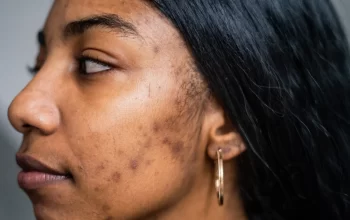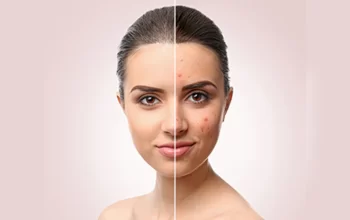How to Effectively Treat Acne on Your Body
Acne is present almost everywhere on the human body. It most often grows on the face, back, shoulders, neck, chest, and arms. If you do have acne, you will usually notice either black or white pimples.
Both whiteheads and blackheads are considering comedones. A comedone is defined as a blackhead with white debris on the surface. If your acne is caused by hormonal changes, there is an increased risk of developing acne vulgaris. This is a more severe form of acne and is characterized by inflamed lesions and painful cysts. It is important to take care when dealing with acne because this type of acne may leave permanent scars.
It is not unusual for women to develop acne during their menstrual cycle, especially if they are taking contraceptives or using birth control pills. There are many different causes of hormonal changes, such as pregnancy, puberty, menopause, and even some diseases such as diabetes. Because pregnancy may cause acne to develop, pregnant women should use caution when treating any type of acne. The medications used to treat acne can cause adverse side effects in some pregnant women, so it is always best to discuss any treatment options with your doctor beforehand.
When treating acne, it is important to remember that all types are considered mild, except for severe acne which is considered to be cystic or severe. Severe acne is characterized by inflamed lesions and can lead to permanent scarring. There are a number of treatments available for acne, from over-the-counter medications to more serious procedures such as acne surgery. If you suffer from acne and are considering treatments, remember that most treatments work better for some people than others.
Over-the-counter medications containing benzoyl peroxide or salicylic acid are usually very effective in helping to reduce the bacteria and redness of the pimples. These medications help prevent the formation of excess oils, which can then clog the pores and lead to acne. Oral medications are sometimes helpful in reducing the redness and inflammation of acne. However, if the pimples are very severe, oral medications may cause excessive dryness of the skin, which can further worsen the condition.
Sometimes acne medication can cause undesirable side effects such as loss of appetite or weight gain. For this reason, it is important to note that acne medications should only be taken under the direction of a qualified medical professional. Benzoyl peroxide and salicylic acid can irritate the sensitive skin of the face, which can further increase the likelihood of a pimple development. In some cases, patients have reported developing infections from the antibiotics used to treat their pimples. Some people experience an allergic reaction from salicylic acid, which can result in the break out of hives and swelling of the face.









